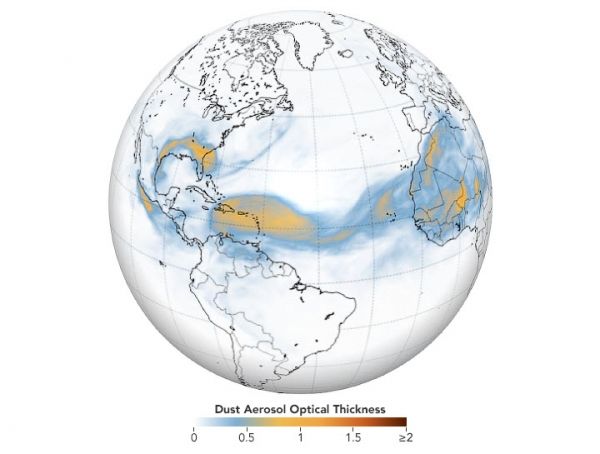Winds routinely drive clouds of Saharan dust out of West Africa and across the Atlantic Ocean in the summer. But the intensity and extent of a plume that departed Africa in June 2020 was so great that it had internet meme-makers buzzing about a “Godzilla” dust cloud. From the International Space Station, NASA astronaut Doug Hurley described the vast ribbon of dust as “amazing.” And as dust blanketed the Caribbean Sea and darkened skies in several states in the U.S. Southeast, several meteorologists called the event “historic.”
Such superlatives are backed by data. One preliminary analysis of aerosol optical depth (AOD) measurements from NASA’s Moderate Resolution Imaging Spectroradiometer (MODIS) sensor showed a greater concentration of dust in the atmosphere over the Atlantic Ocean on June 20 than on any other day since 2003. AOD is a unitless measurement of how much light the airborne particles prevent from traveling through the atmosphere. A few days later, a ground-based AERONET sensor at Ragged Point, Barbados, recorded the all-time highest AOD value the site has recorded since 1996.
Continue reading at NASA Earth Observatory
Image via NASA Earth Observatory


